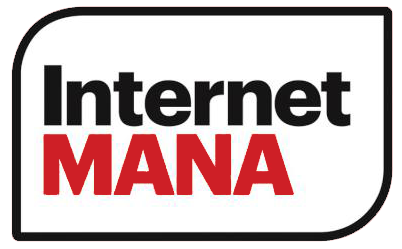Policy | Health
Good health is supported by having a good standard of living. A decent level of housing, a liveable income, and a job with good work conditions where people are in charge of their lives, are key determinants for whānau health and wellbeing.
MANA will work to improve the living standards of low income whānau in terms of housing, income, and employment. Higher standards of living are critical to addressing health issues such as diabetes, cancer, heart disease, respiratory conditions like asthma and emphysema, and rheumatic fever.
A key health focus of MANA is to invest in supporting the health and wellbeing of whānau including free primary health care visits and prescription charges, and in making the public health system more comprehensive by including health services for eyes, ears, and teeth.
More also needs to be done to ensure there is equitable access to affordable, non-discriminatory, quality health care, and to address other factors that contribute to health, such as smoking, alcohol, and diet. MANA is committed to the goal of a Smokefree Aotearoa by 2025.
MANA policy priorities are to:
- Support whānau health and wellbeing
- Eradicate diseases of poverty by raising incomes, investing in job creation, and improving the availability of quality, affordable housing.
- Work to develop a high quality, prevention-focused public health system which is free and accessible for all.
- End prescription charges and support the Pharmac model of affordable medicines by protecting it from drug company cartels in unfair trade agreements.
- Include free health care for eyes, ears, and teeth in the public health system.
- Extend free after-hours medical care to children up to 18 years and those who are dependents, and for senior citizens.
- Develop regular child health forums for all childhood stages.
- Provide free family planning advice and free contraception.
- Increase access to and funding for mental health services, including those for children and young people.
- Promote the use of whānau concepts within the delivery of health programmes. Wellbeing is improved by working with the wider whānau.
- Introduce government-funded breakfast and lunch programmes in all low-decile ECE and schools, and support the development of school, marae, and community gardens.
- Increase support for veterans including ensuring all are eligible for a veterans’ pension in place of NZ superannuation and that family members caring for veterans with disabilities receive a support payment at the same rate as professional caregivers.
- Equitable access to non-discriminatory, quality health care
- Eliminate institutional racism in the health system through greater ethnicity-based auditing, a more effective governance system, the expansion of Māori health provision including rongoā Māori and the protection of traditional practices, and health workforce development to address the racism of health care workers and systems.
- Pay parity for healthcare workers employed by Māori and iwi health providers.
- A renewed focus on improving health statistics for low-income Maori and Pacifica families where health needs are greatest.
- Support Maori health programmes with proven outcomes, including initiatives in mental health, and use these as a benchmark for a national roll out of initiatives.
- Introduce compulsory standards for aged care providers, including minimum staffing and training levels. There needs to be pay parity for aged care workers with staff employed by DHBs.
- Support the use of cannabis for medicinal purposes when made available under prescription from a health professional.
- Introduce plain language information for users of health services to improve health literacy.
- Develop a paramedic training programme and emergency rapid response service for areas where health services are scarce.
- Levy private health providers to contribute to the public health system where they transfer patients to maintain private profitability.
- Ban tobacco and reduce access to alcohol and unhealthy kai
- Ban the importation, manufacture, and sale of tobacco and tobacco products in New Zealand. Cigarettes would instead be provided by pharmacies on prescription.
- End alcohol advertising and strengthen legislation to restrict the ability of alcohol companies to sell, promote, and discount alcohol to reduce drinking and particularly teenage drinking.
- Ensure adequate levels of funding for residential and community-based alcohol and drug addiction services and drug cessation programmes.
- Restrict the advertising of unhealthy kai, including that of fast food chains, to children and young people, and more strongly regulate what goes into processed foods and beverages.
- Give communities a veto over whether and where liquor outlets, fast food outlets, and pokie venues are established.
- Continue the ban on the sale and supply of all synthetic cannabis products and move to also ban their importation and manufacture in New Zealand


